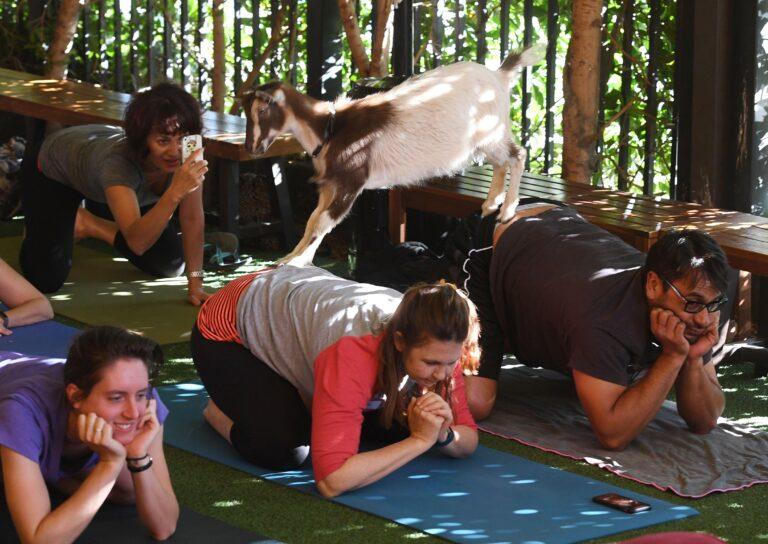Roundworms in dogs are perhaps the most common parasitic infection among our canine family members. But unlike what a lot of people mistakenly think, this health issue can lead to rather serious consequences if neglected or not given immediate and proper care.
In a few moments, I’m going to walk you through the key things you need to know about roundworms in dogs. Guided by my more than a decade’s worth of experience in homeopathy, I will help you get on the right track as regards supporting your precious pet during this condition.
.
Besides giving you the lowdown on its causes and symptoms, I will also touch on the natural remedies you can use to deal with this problem the right way (plus a little bonus if you read this all the way through).
So without further ado, why don’t we kick things off by finding out what exactly roundworms in dogs are?
What are roundworms in dogs?
A dog roundworm is a type of gastrointestinal parasite that is technically referred to as a nematode or ascarid. This organism has a spaghetti-like tubular shape from which it got its name. A canine roundworm usually shelters inside a dog’s intestines where it lives off on partly digested bits and pieces of food.
While there are numerous kinds of roundworms, only two (2) of them have been observed to commonly affect dogs, namely Toxascaris leonina and Toxocara canis. Between these two, Toxocara canis is deemed as the more infectious and dangerous since it can be transmitted vertically to humans.
Roundworms can affect any dog regardless of breed, age, or gender. However, these parasites are typically prevalent in puppies and younger dogs whose immune systems are still not yet fully developed to get rid of these unwanted visitors. Additionally, canine roundworms can manifest in your dog’s stool or vomit.
It is crucial to take note that if these parasites are not properly dealt with immediately, canine roundworms can cause a number of potentially fatal health issues such as malnourishment and diarrhea, especially in puppies and juvenile dogs.
Now we’ve got that covered, let’s touch on the causes of roundworms in dogs…
What causes roundworms in dogs?
There are three (3) possible scenarios in which your canine family member could be prone to roundworms in dogs infestation, namely mother to puppy transmission, environmental factors, and ingestion of infected animals and things. I’m going to explain each one of them in detail below:
Mother to puppy transmission
This type of transmission occurs when an expecting dog was infected with roundworms before or during pregnancy. After getting rid of the adult roundworms via treatment, it is possible that some of the roundworm larvae still linger inside the mother’s body tissues and become “reactivated” along the way.
These roundworm larvae can infiltrate the babies while they are in the process of developing inside their mother’s womb or during breastfeeding. This is the biggest reason why puppies and younger dogs should be regularly checked and treated for these parasites no matter how roundworm-free the mother appears to be.
Environmental factors
Although this may sound surprising, your beloved pet could be at risk of being indirectly exposed to the eggs of roundworms in dogs in the most harmless of places. Examples of these include your very own backyard, the dog park, as well as any area where there are bushes or shrubs present.
You see, roundworm eggs can be found on the ground, on leaves and branches, in puddles, and even under outdoor furnishing where bugs, birds, earthworms, and rodents may have been in contact.
While these organisms can carry roundworms in dogs eggs and even larvae, their bodies are not able to make them develop into maturity because they are not the natural hosts of these parasites.
Ingestion of infected animals and things
The most direct factor that your canine family member could be infected with roundworms in dogs is when he unknowingly ingested animals and things that carry these gastrointestinal parasites.
Apart from insects, rodents, and birds that may be carrying roundworm eggs, the consumption of the fecal matter of infected dogs may also result in contamination. What’s even alarming is that puppies and younger dogs can be at risk of this parasite by simply smelling an infected dog’s feces.
Next, let’s talk about how roundworms develop inside a dog’s body…
How do roundworms develop in a dog’s body?
The infestation of roundworms in dogs begins when your canine family member directly or indirectly ingests the eggs of these parasites. Once the eggs get inside the nooks and crannies of his mouth, they hatch into larvae and try to reach his trachea or windpipe, which is a tube that links his throat to his lungs.
When these larvae reach your dog’s windpipe, they set off an irritation, which causes him to cough. And as soon as your canine family member starts coughing, these larvae integrate themselves with his saliva so they can be swallowed to get to his intestines.
A dog’s intestines offer an ideal environment for these roundworm larvae to fully develop into egg-laying adults. Unless given immediate and proper care and attention, these roundworms in dogs will continue to multiply and increase your precious pet’s risk of being prone to diarrhea and malnourishment, which can be fatal in severe cases.
Now let’s touch on the indicators that will help give you a heads up if your dog is infected with roundworms…
Signs of roundworms in dogs
Strangely enough, a number of dogs don’t show any signs of roundworm infestation. So it is possible that these indicators may not be that prominent when your canine family member becomes infected with roundworms in dogs.
Nonetheless, the following are the signs of canine roundworms that you should keep an eye out for:
For this section, I will walk you through the natural remedies you can use to properly deal with roundworms in dogs…
How to treat roundworms in dogs at home
If you’re noticing that your canine family member is exhibiting the symptoms of roundworms in dogs, here are the following natural remedies that you can go for:
Integrate apple cider vinegar into your pet’s diet.
According to a study published in the National Library of Medicine, apple cider vinegar helped completely get rid of parasitic organisms that caused coccidiosis, a type of gastrointestinal infection.
Moreover, the researchers emphasized that the use of apple cider vinegar during coccidiosis also significantly raised the activity of antioxidants and catalase enzymes in the body.
To use apple cider vinegar in treating roundworms in dogs, directly add a teaspoon of this fermented beverage into your pet’s meals. You can also mix the same amount of apple cider vinegar with this water.
It is important to take note that you should not give your dog apple cider vinegar straight or undiluted due to its very high acidic content. Besides the possibility of giving your canine family member an upset stomach, doing so may also weaken the enamel of his teeth.
Carrots contain more than just beneficial vitamins and minerals.
The National Center for Biotechnology Information (NCBI) reveals that apart from being rich sources of lutein, potassium, vitamin K1, calcium, vitamin B6, calcium, and biotin, carrots are also abundant in organic oils and compounds that help get rid of parasitic worms that infiltrate the intestinal lining.
To use carrots in treating roundworms in dogs, grate this root vegetable and mix about two tablespoons of the same with your pet’s regular meals. You can also squeeze the grated carrot before integrating it with his food to avoid making it too watery.
Chamomile tea helps inhibit parasite growth.
Another study published in the NCBI shares that chamomile extract contains a natural ethyl acetate that has a similar effect to that of the antiallergic agent oxatomide. This organic chemical helps optimize the immunological response of a dog’s body due to unwanted visitors like roundworms.
To use chamomile tea in treating roundworms in dogs, steep one tea bag in three cups of water for at least ten (10) minutes. Keep in mind that the longer the tea steeps, the more its tannin content is activated. However, the length of the steeping also gives the tea a more pronounced bitter taste.
Use chamomile tea as a water substitute for your canine family member when he is suffering from roundworms in dogs. To get the best results, it is highly recommended to give him this natural remedy first thing in the morning and before he goes to bed at night.
Make the most of coconut’s healing powers.
Healthline stresses that besides having rich amounts of essential minerals like copper, manganese, and iron, coconuts are also abundant in medium chain fatty acids or MCFA’s that have been seen to possess antiviral and antibacterial capabilities.
Additionally, studies show that these MCFA’s have considerable benefits in clearing and keeping pinworm infestations at bay.
To use coconut in treating roundworms in dogs, you can either give your animal companion its water or some of its flesh. Make sure that you only feed him a suitable amount that is relative to his size.
Another application that you can go for is to give your dog half a teaspoon of coconut oil per day. Make sure you only use virgin coconut oil or unrefined coconut oil for this approach to avoid stomach issues such as indigestion and cramps.
Kefir is a probiotic powerhouse.
As shared by the Functional Foods in Health and Disease Journal, kefir is seen to not just have probiotic effects that help improve digestive system health and lactose tolerance, but also boost immune function in relation to responses against inflammations and parasites.
To use kefir in treating roundworms in dogs, give your dog a teaspoon of this fermented drink per day. It is important to take note that your canine family member may not appreciate kefir’s taste immediately, so introduce it little by little and not the whole dose at once.
Alternatively, you can directly mix kefir with your dog’s food. Just make sure you integrate it thoroughly to mask its tart taste.
Pumpkin seeds are naturally rich in antiparasitic compounds.
According to a study published in the NCBI, pumpkin seeds have been observed to be rich in natural anthelmintic compounds—or compounds that drive out parasitic worms—like palmatine, berberine, as well as cucurbitine.
The study’s proponents even stressed that “pumpkin seed extracts could constitute novel candidates to become inexpensive sources of anthelmintic compounds.”
To use pumpkin seeds in treating roundworms in dogs, roast the seeds first in the oven to make their shells easier to remove. Allow them to cool down completely and check for any wayward bits of the shell before serving them to your pet. Don’t add any seasoning or flavoring for this approach.
An alternative application would be to finely grind the roasted pumpkin seeds until they reach a powdery texture. You can mix this powder directly with your dog’s meals. It is highly recommended that you use a food processor to achieve the ideal consistency.
Turmeric is packed with organic compounds that help fight parasites.
Another study published in the NCBI highlighted turmeric’s rich curcumin content, which has been seen to be very effective in getting rid of parasitic infections such as in the case of S. mansoni worms.
The study’s researchers stressed that turmeric “significantly reduced parasite worm burden”
To use turmeric in treating roundworms in dogs, peel and grate this spice, and directly add it to your canine family member’s meal. Make sure that you only give your pet a suitable amount that is relative to his size.
In case you’re not entirely sure of how much turmeric to give your dog for this application, remember to use a third of a thumb-sized portion.
Next, I’d like you to check out our favorite natural and high-quality product when dealing with roundworms in dogs…
A natural product you should consider having in your dog home care kit
HomeoAnimal’s PARASITES AND WORMS is designed to help support your canine family member’s gastrointestinal tract when roundworms in dogs get in the picture. It also uses a gentle, holistic approach to help provide your precious pet with the well-being and comfort he truly deserves.
Besides being made with high-quality natural ingredients, PARASITES AND WORMS also does not contain any chemicals, which can possibly decrease or even nullify the effects of the former.
To use PARASITES AND WORMS in supporting your canine family member during roundworms in dogs, you simply have to give your pet a single spray directly in his mouth or in his water each day. Make sure you follow the recommended dosage as well as stop administering the product when symptoms disappear.
Now let’s discuss the difference between roundworms in dogs and tapeworms…
Roundworms in dogs vs tapeworms
There are two (2) main distinctions between roundworms in dogs and tapeworms, particularly size and appearance, which we will touch on below:
As regards size, roundworms in dogs are tubular and can have a length of 4 to 5 inches when fully grown. Tapeworms have flat, segmented bodies and can reach up to inches in length when they reach adulthood.
When it comes to appearance, roundworms in dogs can be described as being akin to wet spaghetti. On the other hand, tapeworms, specifically each one of its segments, resemble a grain of rice.
Next, I’ll walk you through the distinctions between roundworms in dogs and hookworms…
Roundworms in dogs vs hookworms
There are two (2) main differences between roundworms in dogs and hookworms, particularly size and the way they feed off on the animal they have managed to intrude on. I will elaborate on this in just a bit.
As regards size, roundworms in dogs are considered as one of the largest gastrointestinal parasites that can affect canines with a total length of 4 to 5 inches during adulthood. Hookworms are deemed as the smallest since they can only grow up to around an inch in length even when fully developed.
On the other hand, while both roundworms in dogs and hookworms take refuge inside the intestines, the former consumes partially digested food and the latter feeds on blood.
Now we’ve got that covered, let’s run through the frequently asked questions about roundworms in dogs…
Here are some frequently asked questions about roundworms in dogs you should check out. In case your canine family member is afflicted with this health issue, the following pieces of information will help you come up with a well-planned support strategy:
Can roundworms in dogs be transmitted to humans?
The short answer is yes.
Roundworms in dogs can be transmitted to humans should the latter accidentally or unknowingly ingest fecal matter or soil contaminated with the eggs of these parasites.
This is the main factor why roundworms in dogs typically affect toddlers and younger children who may be exposed to their eggs by playing in or near sandpits, outdoor furniture, and similar areas that may put them at risk of vulnerability.
Moreover, it is the Toxocara canis variety of roundworms in dogs that can be vertically transmitted to humans.
Are roundworms in dogs contagious to other animals?
The short answer is yes.
Other animals such as dogs and cats may be infected with roundworms in dogs if your canine family member carries these parasites. This risk of contamination also becomes even higher if they live together.
Should other cats and dogs become exposed to and ingest the fecal matter of an infected dog, they also run the risk of being contaminated with roundworms.
Are roundworms in dogs fatal?
The short answer is yes.
This is especially true among puppies and younger dogs whose immune responses still aren’t that developed and equipped to fight off gastrointestinal parasites such as canine roundworms.
Apart from running the risk of going through severe malnourishment, they could also be prone to a potentially fatal case of diarrhea.
This is the reason why you should immediately provide proper care and attention—not to mention using natural remedies such as PARASITES AND WORMS—should you notice your canine family member exhibiting the signs of being infected with roundworms in dogs.
So that pretty much covers our quick yet detailed discussion on roundworms in dogs. Just to emphasize, this is a health problem that shouldn’t be left to chance or else your precious pet could be subjected to extremely serious or even fatal adverse effects.
Additionally, if you’re looking to find out more about how you can support your dog during parasitic problems using natural means, make sure you sign up for our Free Health Advisor Guidance so our Natural Health Advisors can walk you through the treatment options that best fit your animal’s health needs.
This content was originally published here.




















